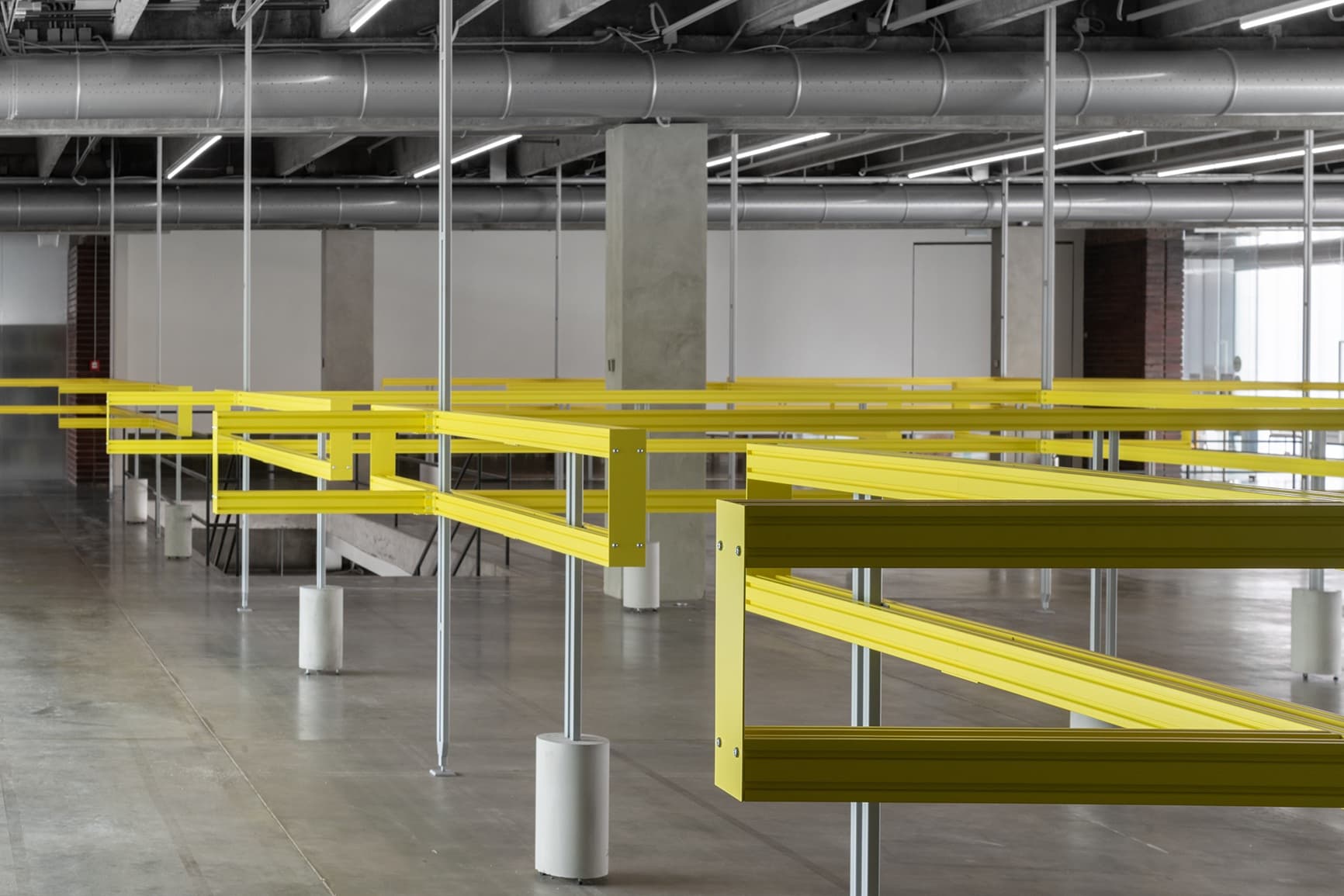Self-Portrait
Gor Chahal
- Category
- MediumOil on canvas
- Dimensions140 × 200 сm
- Сollection
- Inventory numberМСИГ_ОФ_64
- Acquired from
- Year of acquisition2024
Keywords
About the work
The project For Cultural Leisure (1990–1992), of which the painting Self‑Portrait (1992) is part, was partly shown at the eponymous group exhibition at the Kashirka Exhibition Hall in 1990. The exhibition was a rethinking of the concept of leisure, inactivity, and freedom within sets and impressions that were familiar to a Soviet person.
In this series Gor Chahal continued to develop the idea of the “artist‑personality,” which he began with the series Poet and Pistol (1990) and borrowed from Soviet conceptual art of the 1970s. In Self‑Portrait Chahal’s subject is presented as a demonically handsome man at rest, with tousled hair, a white shirt with rolled‑up sleeves, Dva Myacha brand trainers, and a relaxed pose.
Through the aestheticization of his everyday behavior Chahal refers to visual performance and records social rituals, breaking them down until they are unrecognizable. His works anticipate the consciousness of the video clip, reflecting the fragmentary nature of the perception of reality. The combination of various techniques‑cinematographic photographs, painting, readymades (sledges, ties, a pile of books), collages‑is constructed on a symbolic duality. The abstract is contrasted with the realistic, color with black‑and‑white, the material with the imaginary. Chahal uses the Dadaist practice of destroying the canon, creating a new irrational collage from the chaotic, slippery reality of the era of perestroika.

